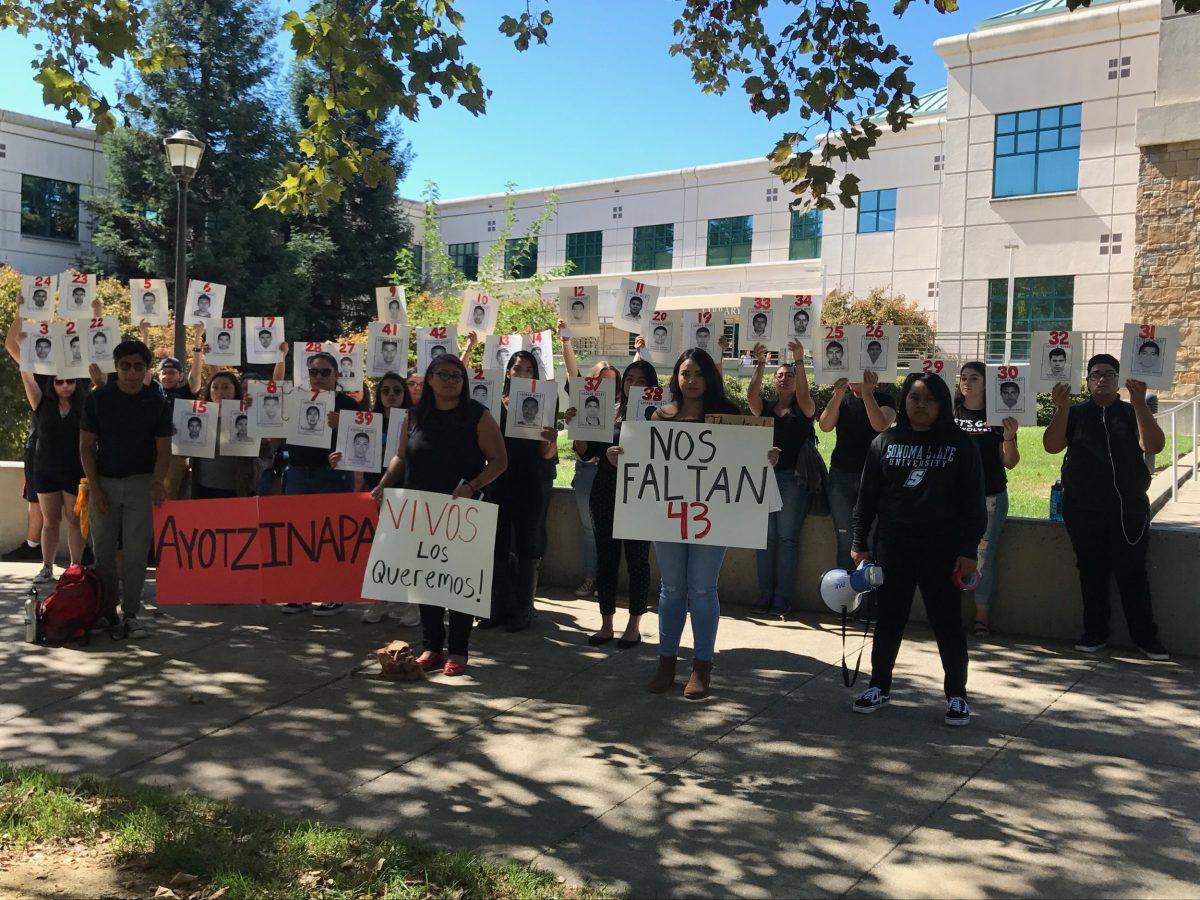Three years ago, 43 student teachers were mysteriously abducted in Guerrero, Mexico. To this day, their families have not received closure.
Since none of these students have been found alive or dead, this is an ongoing case. Active organizations are still searching for the missing students, keeping their voices heard in support of the students’ family members.
On Sept. 26, 2017, the three-year anniversary of the students’ disappearance, the Mujeres Activas en Letras y Cambio Social chapter at Sonoma State University held a commemoration ceremony in Seawolf Plaza for for the missing students. This organization aims to empower and provide space for women of color at Sonoma State.
At the ceremony, the group printed out portraits of the missing 43 students and explained the story of their abduction to students passing by. Their intentions were to educate and inform others, according to Melissa Vargas, a fifth-year student and president of the group.
“Our purpose was to stand in solidarity with [the missing students] fight for justice,” Vargas said. According to Vargas, there is suspicion that the Mexican government contributed to the students’ disappearance, causing major distrust between the country’s government and its citizens.
“The violence and corruption is not new,” Vargas said. “It’s not just a Latinx issue; police brutality is something we see here in the U.S. too.”
Vargas explained the relevance of police brutality in modern America, pointing out its harmful effects against the African-American community in particular.
“It’s important to acknowledge what happened because we need to hold government officials accountable for their corruption and we need transparency for the public,” Vargas said.
Mexico has been struggling to overcome corruption in the government and police force for years, according to Vargas. She said it also affects U.S. citizens that have family members in Mexico or just know about the tragedies that the public is experiencing in some places there.
Diana Bautista, a sophomore majoring in Chicano and Latino studies, also attended the commemoration.
“So many factors influence everything that happened,” Bautista said. “Mexico should acknowledge what is happening.”



































